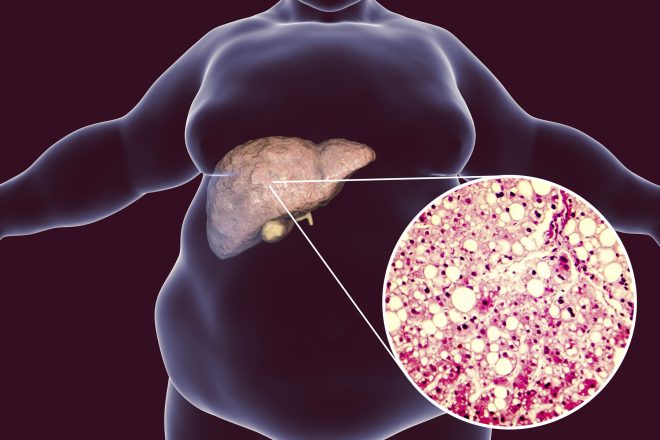
Testosterone therapy may reduce non-alcoholic fatty liver disease in obese
According to a new study,
testosterone therapy may reduce non-alcoholic fatty liver disease in obese men
with functional hypogonadism and type-2 diabetes.
Testosterone therapy may help
obese men with functional hypogonadism and type-2 diabetes reduce the
prevalence of non-alcoholic fatty liver disease (NAFLD), according to a study
being presented at the 23rd European Congress of Endocrinology
(e-ECE 2021), (http://www.ece2021.org).
The two-year study found that therapy with testosterone undecanoate normalised
testosterone levels, reduced NAFLD, and suppressed the symptoms of hypogonadism
in men living with these conditions.
NAFLD is emerging as a public
health issue worldwide. It is estimated that prevalent cases will increase 21%
by 2030, from 83.1 million to 100.9 million. NAFLD is more commonly found in
people with type-2 diabetes, and is linked to obesity, insulin resistance and
atherogenic dyslipidemia. NAFLD refers to excess fat accumulation in the liver,
in the absence of excessive alcohol consumption. Alcohol consumption of less
than 30 g (3.75 units) per day for men is used as the cut-off to diagnose
NAFLD. As an increasing global health issue, this study and its findings may be
a promising area for further research.
Dr Kristina Groti Antonic and
her team from the University of Ljubljana, Slovenia, carried out a large study
on the effects of testosterone therapy on glycemic control, metabolic
parameters, vascular function and morphology in obese men with hypogonadism and
type-2 diabetes mellitus. They presented a part of this study at e-ECE 2021 in
which they evaluated the effects of testosterone therapy on morphology and
grade of NAFLD in this population. The two-year clinical trial saw 55 males
with functional hypogonadism and type-2 diabetes participate. The first year focused
on a double blind, placebo-controlled study and the following year was used for
follow-up.
During the study, the
participants were randomised into two groups. The first group received
testosterone undecanoate during both years of the study, while the second group
received a placebo in the first year and testosterone therapy in the second
year. A range of tests including testosterone levels, prostate specific antigen
and routine blood tests were assessed at the beginning of the trial, 12 and 24
months. Liver ultrasounds for NAFLD grade assessments were performed at the
beginning and after two years, which showed an improvement in NAFLD grades
after two years of the trial.
Dr Kristina Groti Antonic
shared that, “improvement of NAFLD grade was a result of improved insulin
resistance, reduction in body mass index and body weight, along with changes in
body composition. As we know, testosterone increases lean body mass at the
expense of fat mass, either alone or in combination with behavioral and
lifestyle modifications. Testosterone with its anti-inflammatory effects also
reduced chronic inflammatory state in the liver. Our study shows that
testosterone therapy could be used as a suitable therapy for obese men living
with non-alcoholic fatty liver disease, and therefore the findings can be used
to tackle this growing pandemic.”
This knowledge could help
obese men living with functional hypogonadism and type-2 diabetes experience
normalised testosterone levels and reduced prevalence of non-alcoholic fatty
liver disease.